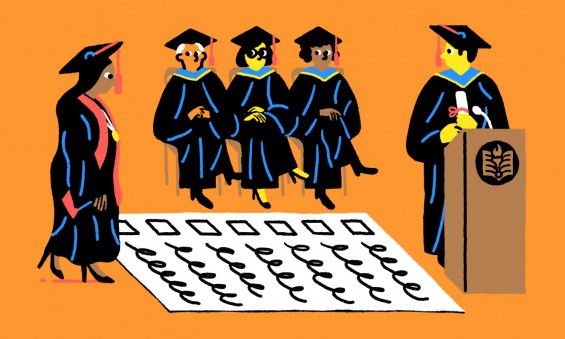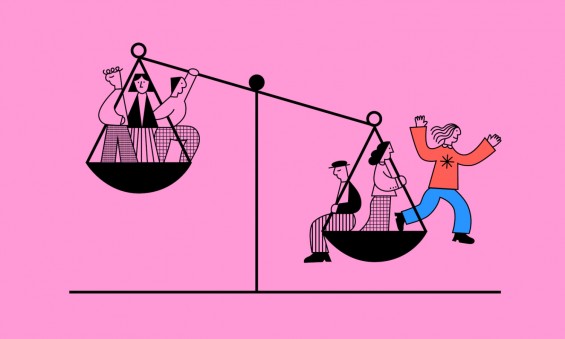
2 words that can help check your assumptions about people
Asking “so what?” can bring out your hidden beliefs and ideas, says career strategist Gail Tolstoi-Miller.
Six seconds.
That’s how long the typical recruiter is said to spend reviewing a resume.
In order to whiz through a dashboard full of applicants, recruiters rely not only on their years in the workplace but also on something not so admirable: their unconscious biases.
We all have biases, and without them, we might not function so effectively in the world. These mental shortcuts are formed from cultural conditioning and our life experiences, and they enable us to scan a crowded street and spot a police officer if trouble strikes, or scroll through a list of health-care providers and choose one without melting down.
Problems arise when important decisions — such as employment, school acceptance, mortgage approval — are shaped by unconscious biases. “Every single day we’re making hiring mistakes because we don’t see things as they are, but as who we are,” says Gail Tolstoi-Miller, a recruiter turned career strategist based in the New York area.
Age, ethnicity, gender, disability and sexual orientation are factors known to cause people’s unconscious bias to kick in, but we can have implicit preferences and aversions in all sorts of areas.
“Every single detail of your resume, not including your skills, can be a deciding factor about whether you go in the ‘yes’ or ‘no’ pile,” says Tolstoi-Miller. “A mailing address that indicates a long commute or undesirable location could put you in the ‘no,’ an email address such as ‘crazymom666’ can put you in the ‘no.’ …. Even a reputable college such as Indiana University can be perceived as not a pedigreed school by some, and [if so] guess what? I just put Mark Cuban in the ‘no’ pile.”
And it’s not just recruiters whose work can be affected. Many of us are in positions — professional, volunteer, community, social media — where we need to evaluate and sort people.
Of course, the trickiest part about unconscious biases is that they’re unconscious. So how can we guard against the strange, hairpin turns that our subconscious minds may be making?
Tolstoi-Miller suggests we use these two words: “So what?”
Before you relegate a person to the “no” or “pass” pile, address your reasons for putting them there by asking “So what?”
So what — if you can’t quite tell what their gender is from their name, if they’re from a town in your state you’ve never heard of, if you know they’d have to take a ferry and 2 buses to get to the office, if they used a strange font on their cover letter, if they put a photo of themselves on their resume, if they’ve been out of work for six months?
“So what” is not a silver bullet. But it can be a preventive against your making the biggest mistake: missing out on a great person for an unimportant reason. You might not have the time to do this with every single candidate; you may just want to reserve it for your short lists. And of course, your “So what?” could reveal that you have a very valid reason to reject someone.
Says Tolstoi-Miller, “Asking yourself ‘so what?’ is a pause, it’s a self-check, and it helps you remove your emotional clutter … It also helps you focus on what is important by questioning the facts and judgments that you use to make decisions.”
Watch her TEDxLincolnSquare Talk here:
ABOUT THE AUTHOR
Mary Halton is Assistant Editor at TED Ideas, and a science journalist based in the Pacific Northwest. You can find her on Twitter at @maryhalton
This post was originally published on TED Ideas. It’s part of the “How to Be a Better Human” series, each of which contains a piece of helpful advice from someone in the TED community; browse through all the posts here.




